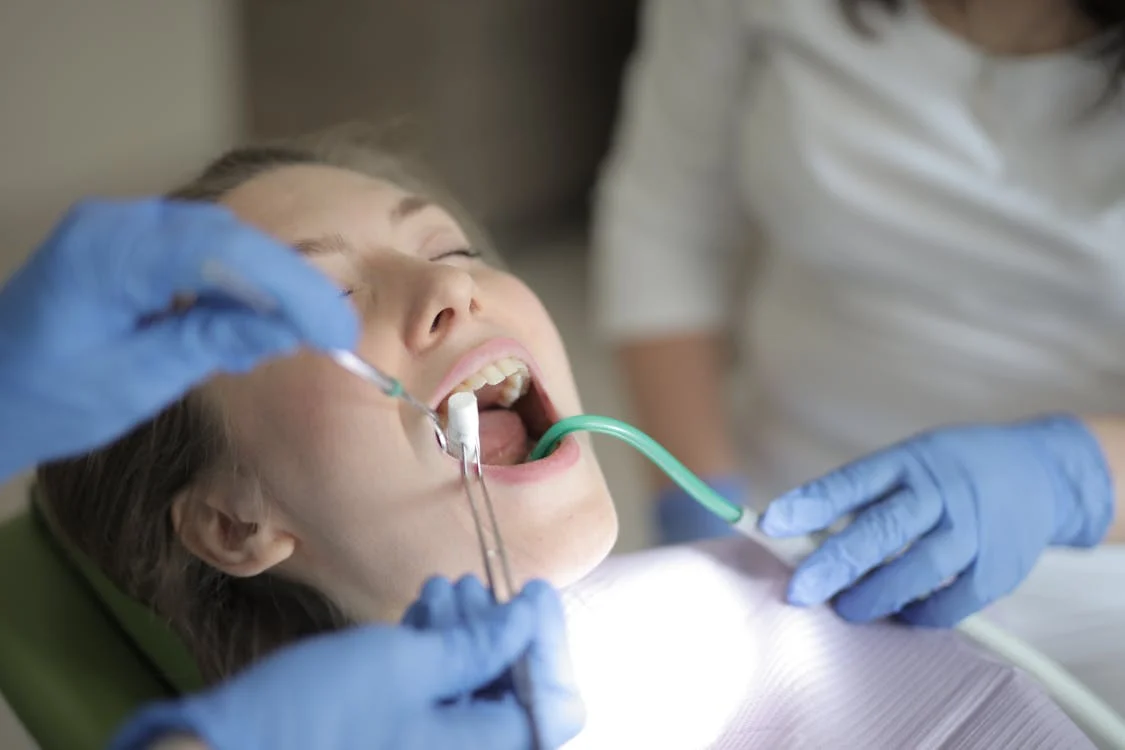Full vs Partial Dentures: What’s the Difference?
Well, choosing between full and partial dentures depends on individual dental needs. Full dentures replace missing teeth, offering comprehensive restoration and support for facial structure.
Complete dentures of Southern Rivers Dental are ideal for patients missing all teeth in either the upper or lower arch. Partial dentures, on the other hand, replace multiple missing teeth but not an entire arch. They are secured by clasps attached to the remaining natural teeth. Partial dentures are a practical choice when some natural teeth are still present. Understanding the differences helps you to make informed decisions about their dental restoration options.

Difference Between Full and Partial Dentures
Dentures are prosthetic devices that replace missing teeth and restore oral function and aesthetics. The choice between full and partial dentures depends on the extent of tooth loss and individual dental needs.
Full or complete dentures replace missing teeth in the upper (maxillary) or lower (mandibular) arch.
They consist of a flesh-colored acrylic base that fits over the gums and supports a complete set of artificial teeth.
Dentures are removable prosthetic devices that replace missing teeth and restore function and aesthetics. They are broadly classified into full (complete) dentures and partial dentures. Each type has advantages and disadvantages, depending on the patient’s needs and tooth loss.
Full Dentures
Full dentures, or complete dentures, are designed for patients who have lost their teeth in either the upper or lower jaw or both. They consist of a gum-colored acrylic base on the gums, with artificial teeth made from acrylic resin or porcelain. These dentures rely on suction or a dental adhesive to stay in place.
Advantages of Full Dentures
-
-
- Restoration of Function: Full dentures allow patients to chew and speak more effectively, which can improve overall quality of life.
-
- Aesthetic Improvement: They restore facial appearance by filling out the cheeks and lips, which may have a sunken appearance due to tooth loss.
- Affordability: Full dentures are generally more cost-effective than tooth replacement options like dental implants.
-
Disadvantages of Full Dentures
-
-
- Stability Issues: Full dentures can sometimes move or slip out of place, particularly in the lower jaw, leading to discomfort and insecurity.
-
- Bone Loss: Over time, the jawbone may shrink without stimulating natural teeth, causing dentures to fit poorly and require adjustments.
- Adjustment Period: It can take time for patients to get used to wearing full dentures, and some may experience soreness or difficulty in speaking and eating.
-

Partial Dentures
Partial dentures are designed for patients with some natural teeth remaining. They consist of a metal or acrylic framework that attaches to the natural teeth, with artificial teeth filling in the gaps. The framework often includes clasps or precision attachments to hold the denture securely.
Advantages of Partial Dentures
-
-
- Preservation of Natural Teeth: Partial dentures help maintain the alignment of the remaining natural teeth by preventing them from shifting.
-
- Improved Stability: Because partial dentures are anchored to natural teeth, they are generally more stable and less likely to move than full dentures.
- Customizable: Partial dentures can be designed to accommodate the patient’s specific needs, including the number and position of missing teeth.
-
Disadvantages of Partial Dentures
-
-
- Complexity: The design and fit of partial dentures can be more complex and may require several visits to the dentist.
-
- Potential Damage to Natural Teeth: The clasps or attachments used to hold the partial denture in place can sometimes cause wear or damage to the remaining natural teeth.
- Aesthetic Considerations: Metal clasps used in partial dentures may be visible, which can concern some patients.
-
Comparison of Full and Partial Dentures
Suitability: Complete dentures are suitable for individuals who have lost all their teeth, while partial dentures are ideal for those with some natural teeth. Partial dentures are often recommended when the patient’s remaining teeth are healthy enough to support the appliance.
Maintenance and Care: Both dentures require regular cleaning to prevent infections and maintain oral health. However, partial dentures may require more frequent adjustments due to the potential shifting of natural teeth.
Cost and Longevity: Partial dentures are generally more expensive than full dentures due to their complexity and the need for customization. However, they may last longer since they don’t rely entirely on the gums for support, reducing the risk of bone loss.
Full or Partial Dentures: Which One to Opt For
The choice between full and partial dentures depends on the patient’s oral health, number of missing teeth, and personal preferences. Full dentures are ideal for complete tooth loss, offering a cost-effective solution with aesthetic benefits but with some stability issues.
On the other hand, partial dentures provide a more stable and natural-feeling solution for patients with some remaining teeth, though they may come with a higher cost and potential risks to natural teeth. Consulting with a dental professional is essential to determine the best option for individual needs.

Frequently Asked Questions
Can I eat normally with dentures?
Yes, dentures restore chewing ability. Start with softer foods and gradually introduce more complicated textures as you adjust.
How long do dentures last?
Full dentures typically last 5-7 years, while partial dentures may need adjustments or replacement over time.
How Should I Care for Dentures?
Dentures should be cleaned daily with a brush and soaked in a denture-cleaning solution. They should be removed at night for oral tissue rest. Regular dental check-ups are essential for maintenance.
Final Thoughts
If you understand the differences between full and partial dentures, you can make informed decisions based on your dental needs and preferences. Consultation with a qualified dentist of Southern River Dental is best for personalized guidance and optimal oral health outcomes.
Thank you for reading!



